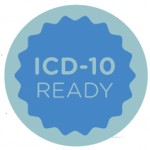Technical Difficulties
With the significant changes between the code sets, how CMS plans to test the system in advance has been a key topic of conversation in the medical community and on Capitol Hill. Getting the initial testing week, held March 3–7, 2014, on the calendar was a positive outcome for the ACR and other professional organizations that had been lobbying for testing. However, this first pass did not represent true end-to-end testing because it only tested the CMS system, as opposed to going from the provider through any intermediaries to CMS, being processed and then going back to the provider.
In response to an outcry from the medical community, CMS announced that there would be three end-to-end testing periods in 2015 involving a total of 2,550 volunteers. The testing periods include the submission of test claims to Medicare and then a subsequent response, called a remittance advice (RA), which explains the adjudication of the claims. With the testing period, CMS intends to demonstrate that providers can successfully submit claims through Medicare, that software changes made at CMS to support ICD-10 result in appropriately adjudicated claims (based on the pricing data used for testing purposes) and that accurate RA documents are produced.
To facilitate the testing, CMS required Medicare administrative contractors (MACs) to conduct limited end-to-end testing with submitters. Test claim submissions were scheduled for Jan. 26–30, April 27–May 1 and July 20–24, 2015. The expectation was that testers would be selected randomly to “represent a broad cross-section of provider types, claims types, and submitter types,” including between five and 15 clearinghouses, as noted in the CMS MLN Matters No. SE1409 (Rev. Dec. 8, 2014).
Although this expansion of the testing initiative is an improvement, it’s not exactly what the ACR was hoping for, Dr. Harvey says. The current claim acceptance rate is 97% for ICD-9 codes, he explains, and the first tests held in January resulted in approximately 80% acceptance, and only 3% were rejected because of ICD-10 code problems. “We believe that everyone who wants to should have the opportunity to test,” he says, “but this is still a huge step from where they were a year ago. … I remain particularly concerned for the thousands of solo or small group practices [that] will have to rely on believing they are similar enough to other practices [that] actually got the opportunity to test, because the vast majority of them will not be one of the 2,550.”

